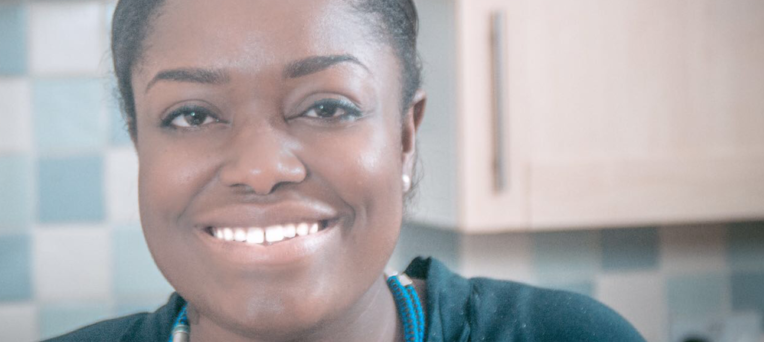Admit What You Did Wrong Too: Holding Yourself Accountable
Cognitive dissonance is the theory which explains the inconsistency between two thoughts. In other words, when attitudes and behaviors begin to conflict with one another.…
Cognitive dissonance is the theory which explains the inconsistency between two thoughts. In other words, when attitudes and behaviors begin to conflict with one another. The word dissonance means disharmonious or a lack of agreement. Leon Festinger,social psychologist, is best known for developing the cognitive dissonance theory. Festinger believes we have a tendency to search for cohesiveness that holds all thoughts and beliefs to be the same which is referred to as cognitive consistency. It helps us to understand a “clear picture of the world.” Once thoughts or attitudes and beliefs clash, thus the presence of dissonance exists.

A common example is smoking. If you smoke regularly and know that smoking is detrimental to your health, then that is cognitive dissonance. The two thoughts contrast. Festinger also explains that there is a discomfort that induces a need to change the thought or the attitude to restore consistency. Indeed, dissonance can be reduced by many ways. Changing the behavior (“I will not smoke anymore.”), trivializing the thought (Maybe, I won’t necessarily get lung cancer), or adding another belief (Well, I do actively exercise so my overall health is not that bad.”) are ways of restoring consistency. Restoring cognitive dissonance is not necessarily a good or bad thing, but it is applying rationalizations to a situation.
Robert Heinlein stated, “Man is not a rational animal, he is a rationalizing animal”. Understanding cognitive dissonance highlights the need for justification. It led me to question, “Why do people find it so hard to be accountable for their own actions?” Partially, cognitive dissonance plays a factor in this. We all have made self-justifications to fit this idea that we are not to blame. It is not possible that we are always right in every situation. To deny this, we are proclaiming to be self-righteous which is false. It does require introspection to consider even the slightest bit that our actions, words, or behaviors offended someone or even ourselves. Adhering to the role of the victim, especially in the case of cognitive dissonance, becomes a safety net. The reality is refusing to be held accountable calls for more deflecting of necessary dialogue. It makes everyone, but the individual a scapegoat. We build a self –concept that reflects us in a good light. In other words, we stray away from associating bad characteristics or admittance of wrong doing in this self –concept. If a situation arises (i.e a falling out, argument, break-up), we will continue to rationalize our actions to protect our ego to reduce tainting our image.

Alongside cognitive dissonance, there are two other concepts that can explain why accountability can be difficult to accept. They are confirmation bias and sunk out fallacy. First, confirmation bias is the way our brains processes information to validate our predated thoughts, yet in nature it is contradictory or used for biased interpretation (i.e politicians debating the use of marijuana versus the adverse effects of marijuana). Apparently, researchers suggest that when we receive information that challenges us parts of our brain shut down. How convenient right? Sunk cost fallacy describes the notion of investing in something and becoming fearful of losing the investment and committing to it even when doubtful (i.e staying in a relationship that has been ongoing, but is not fruitful).

Are we busy justifying our actions in lieu of admitting and being accounted for our actions? If we can simply talk ourselves into believing we are not wrong, how does cognitive dissonance impact our self- growth? These questions may not lead to an immediate answer, but this quote by Carol Tavris and Elliot Aronson provides an interesting perspective. “We tell our stories with the confidence that the listener will not dispute them or ask for contradictory evidence, which means we rarely have an incentive to scrutinize them for accuracy.”
If we are constantly manipulating our stories to fit the victim narrative, then it enables an epidemic of false truths. Growth is a beautiful thing and accountability teaches us that we have to be responsible for our actions even the ones we are not proud of.

We have to learn to work on character flaws instead of blaming it on our personality traits. We do offend others and sometimes we are aware, while other times we are not. Sometimes, we are the root of the problem and simply admitting it does not diminish our strengths or other striking qualities we possess. Holding yourself accountable is progressive and mature. Accountability urges us to recognize where we fall short and actively work on them. It is not a slander to our reputation or a defamation of character. However, the denial to do so creates a toxic environment and an universal reason to project, displace, or shift blame and guilt onto others. Taking ownership of our mistakes helps us to look inward, recognize and eliminate bad habits immediately and strengthens relationships and friendships. Some suggestions to combat cognitive dissonance are avoiding friendships that stray away from being completely honest (or people who enable old habits), setting pride aside to admit mistakes, evaluate actions that could have instigated an issue, and examining situations from the other’s perspective.
Accountability is an attribute we all need to work on. This is indubitably true. Recognizing a flaw is not a threat nor does it tarnish our character. That idea is manifested only because we perceive it to be. The earnest desire to combat cognitive dissonance, confirmation bias, sunk out fallacies, and other psychological biases allow stronger internal and external dialogue. It sharpens the ability to locate biases and restore consistency in our thoughts so our behavior and actions are in alignment.
By: Priscilla Brown
Disclaimer: The views, opinions and positions expressed by the authors and those providing comments, opinions on this website are theirs alone, and do not necessarily reflect the views, opinions or positions of M-Lifestyle and their affiliates. M-Lifestyle does not claim ownership of any images used, unless otherwise specified.
![]()






